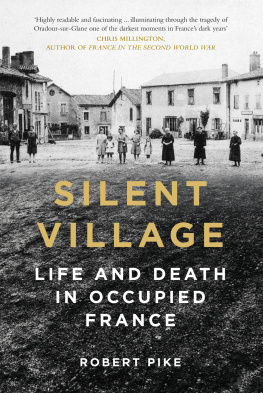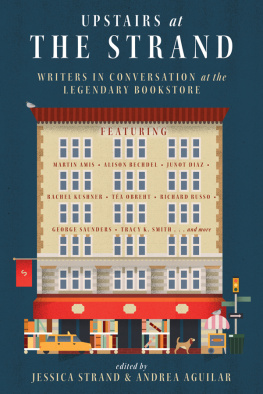All rights reserved.
Published in the United States by The Dial Press, an imprint of Random House, a division of Penguin Random House LLC, New York.
The D IAL P RESS and the H OUSE colophon are registered trademarks of Penguin Random House LLC.
Roiphe, Katie, author.
The violet hour / Katie Roiphe.
1. AuthorsDeath. 2. AuthorsPsychology.
3. ArtistsDeath. 4. ArtistsPsychology. 5. Death.
I. Title.
Prologue
I forget how to breathe. I am being pulled underwater. The taxi driver carries me into the emergency room because Ive passed out in the cab and my mother cant lift a twelve-year-old.
In How We Die, Sherwin Nuland describes the physical effects of pneumonia: The microscopic air sacs called alveoli swell and are destroyed by inflammation. As a result, proper exchange of gases is prevented, and blood oxygen diminishes while carbon dioxide may build up until vital functions can no longer be sustained. When oxygen levels drop below a critical point, the brain manifests it by further cell death.
Someone puts a mask on my face. I taste the sweetness of the oxygen, like tasting sky.
I have a 107-degree fever. At home, my mother had put me in a bathtub with ice cubes in it. In intensive care, there are tubes or snakes in my arms; there are good or evil nurses. An intern sticks a needle into an artery to measure my oxygen levels. In the next bed over, a babys heart stops.
This is when I start writing this book.


Three weeks later I leave the hospital, but I do not get completely better.
The cough is so bad its like an animal that lives with me and sleeps in my bed. On the worst days my mother tries to get me to stay home from school, but I am adamant about going.
I have fevers every evening, shivering through dinner, homework, bath. There is no question that this is the way I will feel forever; there is no idea of after the fever, or if there is any idea like that, it is wan, unconvincing, because the fever is a world.
I wake up with my nightgown soaked in sweat, the sheets wet with sweat. The sweat is shameful, something to be hidden; the fever is also something shameful.
Doctors are consulted, antibiotics prescribed. I go into the hospital and come out of the hospital. My father, who is a doctor himself, is very quiet when the doctors talk. There is no name for what is wrong with me.
One day when I cough, there is blood in the tissue. I taste blood in my mouth. I know this means that I am dying, and so I do the sensible thing and tell no one, not my mother, my father, my sisters, my doctor.
I am not exactly a worldly twelve. During my first pneumonia, a friend of my mothers makes me a little cardboard-box house, with a furry toy mouse in a blue gingham dress, with little bedspreads and armchairs and clothes and books; I love this house and play with it, even though Im too old for it. I am a girl who still plays with a fur mouse in a dress, trying to get a handle on coughing up blood.
My mother plots and pleads and calls up doctor friends to get me an appointment with a famous lung specialist. When I am finally in his office she explains that I cant walk up a flight of stairs in our house without being out of breath. The doctor asks me how I feel. I dont say anything about the blood I am coughing up. I say, I feel fine.
In the meantime, I am reading strange books. I am reading exclusively books about genocide: Primo Levi, Elie Wiesel, firsthand accounts of the Armenian genocide. I have a great, endless appetite for these books, not just for people dying but people dying in great numbers, including children, wars, massacres, naked bodies in trenches. I read them one after another. I am reading with something like desire. I want to see children die.
My mother buys me silk nightgowns for the hospital, because cotton hospital pajamas with their gaping holes and faded prints and little ties are demoralizing. The big clustering groups of doctors and residents and medical students lift up these frothy honeymoon nightgowns to listen, one after another, to my mysterious lungs. I am embarrassed to be half naked in front of a crowd of young doctors.
A family of Pentecostal Christians comes to visit the diabetic child I am sharing a room with. They light candles, and start chanting in Spanish to banish the devil, and throw rice, which is surprisingly loud as it hits the floor. The nurse comes in and screams at them for lighting candles in the hospital, especially around my oxygen. They blow out the candles, and the minute the nurse leaves, they light them again. They offer to banish the devil over me, and my mother lets them.
I write a story in the school literary magazine about a girl in the hospital, which ends with a voice calling to her: Come to me, daughter of the wind. The voice is calling her to give in, pack it up; its almost cellular, this voice, something in the girls body telling her to stop fighting, to go under. The line brings something back to me now. How death, this thing you are resisting, fighting, terrified of, suddenly turns and becomes seductive. As Virginia Woolf writes in her dazzling meditation On Being Ill, illness often takes on the disguise of love, and plays the same odd tricks.
Eventually I have a test where they put a tube down my throat and inject white dye into my lungs. This is supposed to show the doctors whether the chronic infection is localized enough for them to operate. In the X-rays, it looks like there are snow-covered trees in my lungs.
The night before my surgery, the sound of bagpipes floats through the hospital hallways. The sound frightens me, it is so incongruous and beautiful and funereal. My mother explains that the son of a policeman has cancer, and the police have sent a troupe of bagpipe players to play for him.
The operation lasts seven hours. They remove half of one of my lungs. In the recovery room, a tube in my throat, tubes draining my lungs through small holes between my ribs, a tube in my arm, I swim up from the anesthetic and ask for my mother. A nurse says to me, You are too old to call for your mother.
My older sister is in medical school. She is not intimidated by the tubes and climbs into the bed with me, which cheers me up. She brings me a red tin of madeleines that she has made. My best friend does not visit me in the hospital. She has decided to stop being friends with me.









